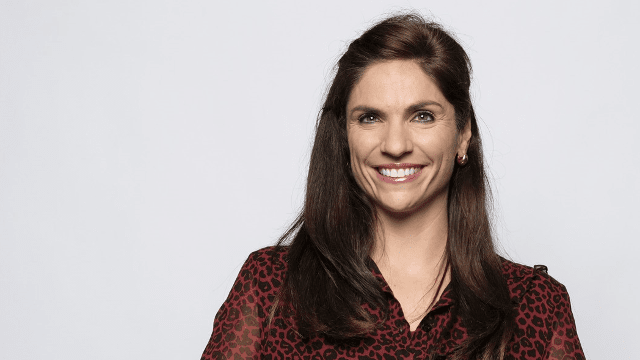Pauline Bar (EDHEC Master 2007) : " women have to think about their capital and financial future."
Last month our LinkedIn page topped 10,000 subscribers! We went to meet our 10,000th fan, Pauline Bar, and discovered a graduate with an inspirational career whose commitment to women’s rights made a strong impression on us. Read her testimonial here as we mark this year’s International Women’s Day, on 8 March.
Can you tell us about your current position and responsibilities?
I’m CEO of The Working Mums, which I founded a little over four years ago. It’s a project that took shape as I became aware that women’s careers often collapse around the time they start having children.
The Working Mums has 2 activities:
The first is for businesses, helping them with everything to do with parity, gender equality, women returning to the workplace after maternity leave, career development, etc. It’s really everything to do with empowerment for women in the workplace.
The second activity targets a private female clientele. The objective is the same, to support their career development, but that’s not all. We really look at all facets of life as women and mothers. We also focus on everything that has do with organization, mental burdens, the distribution of tasks in the home and how to delegate so women can continue to enjoy a rewarding career while having a family. This support comes in the form of tailored coaching: personal branding, career advice, career changes, returning to work, etc. I coach them on how to adopt good practices in organizing their work/life balance. I also run events that bring women together to celebrate inspirational female figures as well as fun workshops.
And what role do men play in your business?
At the companies I work with – I run a lot of workshops and conferences – we also get men involved. I often choose themes mainly designed to help women, but which can also affect men. My objective is to encourage women to continue to be hugely ambitious in all aspects of their life, and the experience of men in this regard can be very beneficial for women. So men must also be included in this process of reflection, because the women who continue to enjoy fine careers after having children are those who are supported by their partner. The way he gets involved in organizing this is crucial: it’s about really taking charge and not just waiting to have tasks delegated to him.
What’s the main advice you give to women you support?
I find 3 pieces of advice particularly important:
The first is to practice a sport. I think this is very important for women to boost their energy levels. It is unfortunately one of the first things they abandon when they become mums, often due to a lack of time because of their work and family life. But paradoxically, I find sport is what allows you to really tackle everything head-on, to free yourself and release endorphins and also continue to have a social life. There are a huge number of benefits that come with practising sport.
My next piece of advice is to divide up the tasks involving the children, particularly in the evening, because what you find is that in careers strategic decisions are rarely made at 7:30am. When I was a finance analyst, I used to travel abroad to a UNICEF agency. On these business trips, I had no engagements in the evening and I noticed the difference between arriving at 7am and leaving at 5pm and arriving a bit later and staying on at the end of the day or even having dinner with staff. Networks are often built up in the evening.
Lastly and above all, I would advise young women to think about their capital and financial future. I’ve worked in private banking and wealth management, and I know from experience that those with the greatest financial resources are the people who have made investments. Their fortune doesn’t come from their revenue but rather from their capital and mainly dividends.
I encourage women, for example in their relationship, to get involved, be aware of and play a part in their investments rather than just delegating everything to their partner. Nowadays, if a woman earns less than her partner, she’ll save very little, perhaps putting some money into a savings account or other risk-free investment. She’ll lose money with inflation and will never be able to build up any wealth for herself.
What does International Women’s Day mean for you?
First of all, this day is an opportunity to remind everyone that women’s rights cannot be taken for granted. We can see that younger generations are much more sensitive to these issues. They really don’t see things the way we did. The need for parity at all levels of business is self-evident to them. But work remains to be done to establish the same rights and duties. The right to enjoy the same career, the same remuneration, the same access to finance and investments, etc.
For example, I still feel somewhat divided on the issue of women taking time out from work to raise their children. This break places women in a position of dependency, and that economic dependency can potentially lead to other problems they will struggle more to cope with than if they had continued a career that was economically viable and socially dynamic.
I think the big issues facing society would be completely different if women had the same rights, in particular the capacity to invest in the same proportions as men. It would be very beneficial for all to have that gender diversity in the world of capital.

Comments0
Please log in to see or add a comment
Suggested Articles


